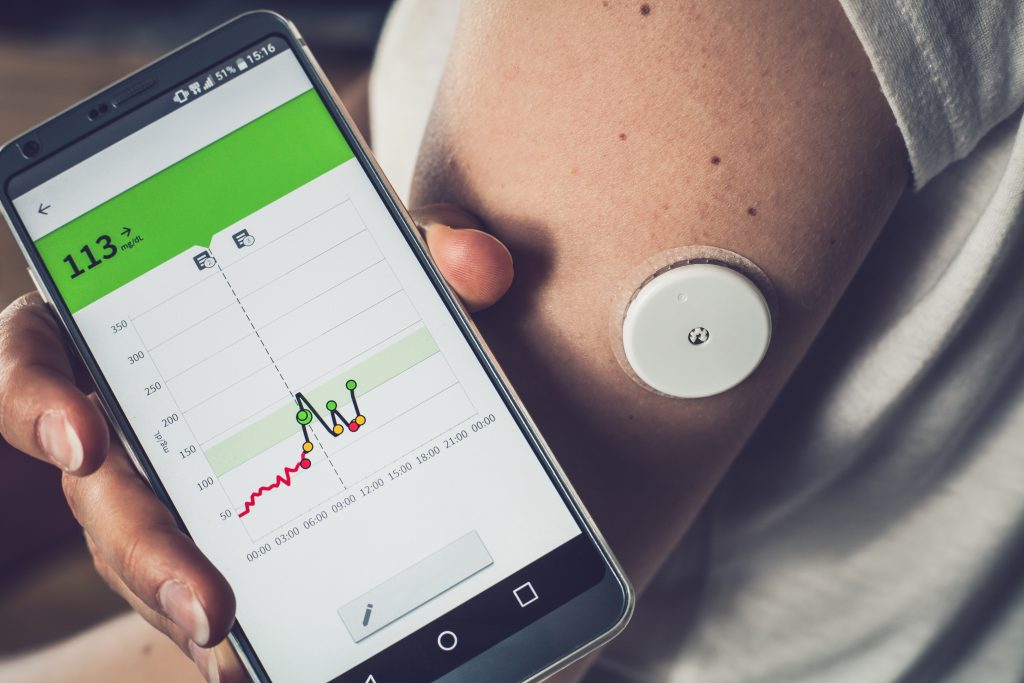Welcome to a journey towards reclaiming your health and well-being! In this blog post, we will explore the empowering path of reversing prediabetes and type 2 diabetes. Whether you’re at the starting line with prediabetes or already managing type 2 diabetes, this guide is packed with valuable insights, practical tips, and inspiring success stories to help you take charge of your health. Let’s dive in together and discover how small changes can lead to significant transformations in managing diabetes.
Understanding Prediabetes and Type 2 Diabetes
Prediabetes is a condition where blood sugar levels are higher than normal but not yet high enough to be classified as type 2 diabetes. It serves as a warning sign, indicating the risk of developing diabetes if left untreated. Type 2 diabetes, on the other hand, is a chronic condition that affects how your body processes glucose. When insulin resistance occurs or the pancreas doesn’t produce enough insulin, blood sugar levels rise.
Both prediabetes and type 2 diabetes can have serious health implications if not managed effectively. Complications may include heart disease, nerve damage, kidney problems, and vision issues. Understanding the differences between these conditions is crucial in implementing appropriate strategies for prevention and treatment.
Regular monitoring of blood sugar levels and maintaining a healthy lifestyle are key factors in managing prediabetes and type 2 diabetes. By taking proactive steps towards better health today, you can significantly impact your future well-being.
The Importance of Early Detection and Treatment
Early detection and treatment play a crucial role in managing diabetes effectively. Detecting prediabetes or type 2 diabetes early can prevent complications and improve overall health outcomes. Regular screenings and check-ups are essential to catch any warning signs early on.
Taking proactive steps once diagnosed can help slow down the progression of the disease. Starting treatment promptly can make a significant difference in how well diabetes is managed. It allows individuals to take control of their health and make necessary lifestyle changes to improve their quality of life.
Educating oneself about diabetes, its symptoms, and potential risks is vital in staying ahead of the condition. Seeking support from healthcare providers, nutritionists, and other professionals can provide valuable guidance on managing blood sugar levels effectively.
Remember, early intervention is key to preventing long-term complications associated with diabetes. Don’t wait until it’s too late – prioritize your health by seeking early detection and starting treatment as soon as possible!
Lifestyle Changes for Reversing Prediabetes and Type 2 Diabetes
Making lifestyle changes is key to reversing prediabetes and type 2 diabetes. One of the most impactful changes you can make is to adopt a healthy diet rich in fruits, vegetables, whole grains, lean proteins, and good fats. This can help regulate blood sugar levels and promote overall well-being.
Regular physical activity is also crucial in managing diabetes. Aim for at least 150 minutes of moderate-intensity exercise per week. This could be walking, swimming, biking, or any activity that gets your heart pumping.
Maintaining a healthy weight through diet and exercise can improve insulin sensitivity and reduce the risk of complications associated with diabetes. It’s important to work closely with your healthcare provider to develop a personalized plan that fits your needs and goals.
Incorporating stress management techniques like mindfulness meditation or yoga can also be beneficial for both mental health and diabetes management. Remember, small changes over time can lead to significant improvements in your health journey!
The Role of Diet in Managing Blood Sugar Levels
When it comes to managing blood sugar levels for individuals with prediabetes or type 2 diabetes, the role of diet is paramount. What you eat directly impacts your body’s ability to regulate glucose levels effectively.
Focusing on a balanced diet rich in whole foods like fruits, vegetables, whole grains, lean proteins, and healthy fats can help stabilize blood sugar levels throughout the day. Avoiding sugary drinks and processed foods high in refined sugars is key to maintaining stable glucose levels.
Incorporating complex carbohydrates that digest more slowly can prevent spikes in blood sugar after meals. Additionally, monitoring portion sizes and spacing out meals evenly throughout the day can also aid in keeping blood sugar levels steady.
It’s essential to work closely with a healthcare provider or a registered dietitian to create a personalized meal plan that meets your specific dietary needs and health goals. By making mindful food choices consistently, individuals can take proactive steps towards better managing their diabetes through nutrition.
Exercise and Physical Activity Recommendations
Regular physical activity is a key component in managing diabetes. Aim for at least 150 minutes of moderate-intensity exercise per week, such as brisk walking or cycling. Incorporating strength training exercises two to three times a week can also help improve insulin sensitivity and control blood sugar levels.
Find activities you enjoy to make exercise feel less like a chore – whether it’s dancing, swimming, or yoga. Remember that even small bursts of activity throughout the day can add up and make a difference in your overall health.
Listen to your body and adjust your workouts accordingly if you experience any discomfort or fluctuations in blood sugar levels during physical activity. Stay hydrated, monitor your glucose levels before and after exercising, and always carry fast-acting carbohydrates with you in case of hypoglycemia.
Don’t forget to include stretching exercises to improve flexibility and reduce the risk of injury. Prioritize consistency over intensity when it comes to staying active – every step counts towards better diabetes management!
Medication Options for Diabetes Management
Managing diabetes through medication is a common approach for many individuals. There are various types of medications available to help control blood sugar levels and improve overall health.
One commonly prescribed type of medication for type 2 diabetes is Metformin, which works by reducing the amount of glucose produced by the liver. Other medications include Sulfonylureas, Meglitinides, DPP-4 inhibitors, GLP-1 receptor agonists, SGLT2 inhibitors, and insulin.
It’s essential to work closely with your healthcare provider to determine the most suitable medication based on your individual needs and medical history. Finding the right balance between medication, diet, exercise, and lifestyle changes is key in effectively managing diabetes.
Remember to always follow your doctor’s recommendations regarding dosage and timing for your medications. Consistency is crucial in ensuring that the medications are effective in controlling blood sugar levels.
In some cases, a combination of different medications may be necessary to achieve optimal results in managing diabetes successfully. Be proactive about discussing any concerns or side effects with your healthcare team to find solutions that work best for you.
Mental Health and Emotional Support for Diabetes Patients
Living with diabetes can take a toll on one’s mental health. The constant monitoring of blood sugar levels, adherence to medication routines, and dietary restrictions can be overwhelming. It’s essential for patients to prioritize their emotional well-being in addition to managing their physical health.
Seeking support from loved ones, joining diabetes support groups, or talking to a therapist can help individuals cope with the emotional challenges that come with the disease. Taking time for self-care activities like meditation, yoga, or simply engaging in hobbies that bring joy and relaxation can also make a positive impact on mental health.
It’s normal to feel anxious or stressed about living with diabetes, but it’s crucial not to let those emotions control your life. Remember that you’re not alone in this journey and reaching out for help is a sign of strength, not weakness. Prioritizing both your physical and emotional well-being is key to successfully managing diabetes in the long run.
Tips for Staying on Track with Your Diabetes Plan
Staying on track with your diabetes plan can be challenging, but it’s crucial for managing your condition effectively. One tip is to set specific and achievable goals related to your diet, exercise, medication, and overall health. Keep a daily journal to track your progress and stay accountable.
Find a support system of family members, friends, or a diabetes support group to share experiences and motivate each other. Remember that small changes add up over time – focus on making gradual improvements rather than trying to overhaul everything at once.
Stay educated about diabetes by reading reliable sources and staying in touch with your healthcare team. Don’t hesitate to ask questions or seek clarification on any aspect of your treatment plan. Celebrate your victories along the way, no matter how small they may seem.
Prioritize self-care practices such as stress management techniques, getting enough sleep, and taking time for activities you enjoy. Taking care of yourself holistically will help you stay committed to managing your diabetes in the long run.
Success Stories: Inspiring Testimonials from
Success Stories: Inspiring Testimonials from individuals who have successfully reversed their prediabetes or managed their type 2 diabetes can provide hope and motivation for others facing similar challenges. Hearing how others have made lifestyle changes, stayed committed to their treatment plans, and achieved positive results can be incredibly uplifting for those on a similar journey.
Remember, managing diabetes is a lifelong process that requires dedication and persistence. By understanding the importance of early detection, making necessary lifestyle changes, staying active, following a healthy diet plan, considering medication options when needed, prioritizing mental health and emotional well-being, and implementing tips for staying on track with your diabetes management plan – you too can take control of your health.
With the right knowledge, support system in place, and a proactive approach to your health, you can work towards reversing prediabetes or effectively managing type 2 diabetes. Stay informed about new developments in diabetes care and continue to prioritize self-care practices that benefit both your physical and emotional well-being. Remember that each small step you take towards better health is a significant achievement in itself. You’ve got this!



